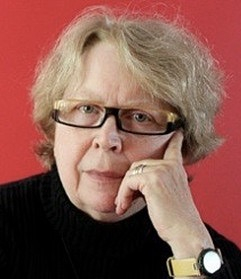
Lorraine Weir came to oral history from Irish studies early in her career and Indigenous Studies more recently via a bridge from the Law and Society field and papers on the concepts of “time immemorial” and “oral tradition” in the Tŝilhqot’in case. She worked as an expert witness in touchstone Canadian censorship court cases and has published on censorship, James Joyce and semiotics, and such Canadian writers as Margaret Atwood and Nicole Brossard. A fifth-generation descendant of Irish Famine survivors, she grew up in Montréal and holds a Ph.D. in Irish literature from Ollscoil na hÉireann (National University of Ireland). Weir is an Emeritus Professor of Indigenous Studies, Department of English Language and Literatures, University of British Columbia, Vancouver.
Lha Yudit'ih is a community-based oral history of the precedent-setting Tŝilhqot’in title and rights case (Tsilhqot’in Nation v. British Columbia). In this presentation, Weir will discuss how the book was made and the contribution of collaborator Chief Roger William (Xeni Gwet’in), while contextualizing the book’s major themes in relation to the colonial history of genocide in the Tŝilhqot’in.
What is "oral history"? How was Lha Yudit’ih created? This workshop will give participants an inside look into the stages of production of a complicated book, from audio recording of unstructured interviews to transcription, editing, and working with translation to the macro issues of organizing material and creating pathways for the reader through hundreds of stories. While much of the methodology informing Lha Yudit’ih arises from the Elders’ teachings shared in the book, thia workshop will also look at the larger context of Indigenous research methodologies in relation to this community-based project.



